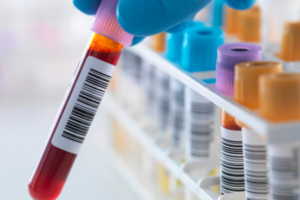The study will utilise the Australian ME/CFS biobank for metabolomics analyses and other assays to identify potential biomarkers for Myalgic Encephalomyelitis/
To enhance the research capabilities within the Australian scientific community concerning Myalgic Encephalomyelitis/Chronic Fatigue Syndrome (ME/CFS) and Long COVID, we played a role in establishing an Australian biobank for ME/CFS managed by Emerge Australia. The establishment of this biobank and registry included conducting a biomarker study utilising patient samples. Although the progress of the biobank was hindered by the pandemic, we have now successfully collected hundreds of samples from willing participants over the past few years.
As part of this initiative, we are currently performing metabolomics analyses on all samples stored in the biobank. This metabolomics data will be integrated with findings from other assays conducted by our collaborators. We plan to disseminate research papers detailing individual projects and subsequently compile a comprehensive dataset for large-scale analysis aimed at identifying potential biomarkers.

Make the most of your donation by donating your Bitcoin, Ethereum, and other cryptocurrencies directly to OMF Australia rather than selling and donating the after-tax proceeds.
OMF Australia can accept cryptocurrency donations of any amount.
Donating cryptocurrency is a non-taxable event, meaning you do not owe capital gains tax on the appreciated amount and can deduct it on your taxes. This makes Bitcoin and other cryptocurrency donations one of the most tax-efficient ways to support your favorite cause. If you want to learn more about how donating crypto can lower your taxes, check out thegivingblock.com/faq.
Talk to a crypto-savvy tax professional or connect with The Giving Block to get connected with one.
We accept the following cryptocurrencies: Bitcoin (BTC), Ether (ETH), Litecoin (LTC), Bitcoin Cash (BCH), Zcash (ZEC), Gemini Dollar (GUSD), Basic Attention Token (BAT), Chainlink (LINK), 0x (ZRX), Storj (STORJ), Dai (DAI), Amp (AMP), The Graph (GRT), UMA (UMA), 1inch (1INCH).